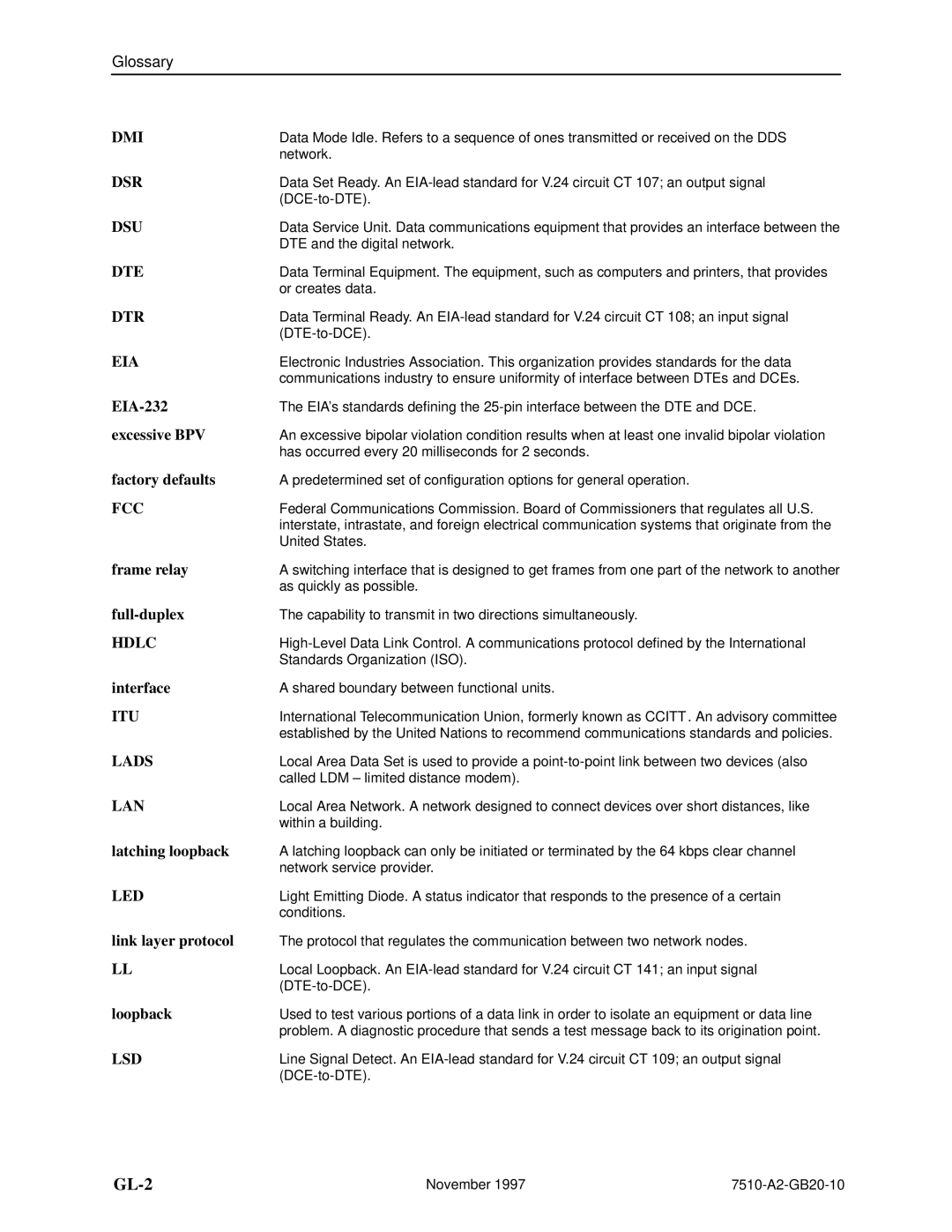Glossary
DMI | Data Mode Idle. Refers to a sequence of ones transmitted or received on the DDS |
| network. |
DSR | Data Set Ready. An |
| |
DSU | Data Service Unit. Data communications equipment that provides an interface between the |
| DTE and the digital network. |
DTE | Data Terminal Equipment. The equipment, such as computers and printers, that provides |
| or creates data. |
DTR | Data Terminal Ready. An |
| |
EIA | Electronic Industries Association. This organization provides standards for the data |
| communications industry to ensure uniformity of interface between DTEs and DCEs. |
| The EIA's standards defining the |
excessive BPV | An excessive bipolar violation condition results when at least one invalid bipolar violation |
| has occurred every 20 milliseconds for 2 seconds. |
factory defaults | A predetermined set of configuration options for general operation. |
FCC | Federal Communications Commission. Board of Commissioners that regulates all U.S. |
| interstate, intrastate, and foreign electrical communication systems that originate from the |
| United States. |
frame relay | A switching interface that is designed to get frames from one part of the network to another |
| as quickly as possible. |
| The capability to transmit in two directions simultaneously. |
HDLC | |
| Standards Organization (ISO). |
interface | A shared boundary between functional units. |
ITU | International Telecommunication Union, formerly known as CCITT . An advisory committee |
| established by the United Nations to recommend communications standards and policies. |
LADS | Local Area Data Set is used to provide a |
| called LDM ± limited distance modem). |
LAN | Local Area Network. A network designed to connect devices over short distances, like |
| within a building. |
latching loopback | A latching loopback can only be initiated or terminated by the 64 kbps clear channel |
| network service provider. |
LED | Light Emitting Diode. A status indicator that responds to the presence of a certain |
| conditions. |
link layer protocol | The protocol that regulates the communication between two network nodes. |
LL | Local Loopback. An |
| |
loopback | Used to test various portions of a data link in order to isolate an equipment or data line |
| problem. A diagnostic procedure that sends a test message back to its origination point. |
LSD | Line Signal Detect. An |
|
| November 1997 |
